The Summer I Spiraled Into A Panic
Too Young For A Mid-Life Crisis, Not Too Young To Panic About It Anyway
I’ve been thinking about permanency lately; how it’s a fallacy. There is no such thing. We are all transient, and everything we are, do, feel, experience - is fleeting.
We feel inexplicable joy, the kind that shoots electric goosebumps up and down our arms and unleashes tens of thousands of butterflies aflutter in our cores. And then the plug is pulled. The sparks fizzle and the colorful insects drain to grey.
We see red. The heat rises from our bellies, curls our fists, and then someone throws a bucket of water on the flame. We unclench. Move on.
We spiral. Our thoughts ride brain waves like they’re ziplines, and when the ropes fray from the constant weight of them, they collapse, knots in our throats and chests. Then, just the right string is pulled. The rest come loose. The misbeliefs clogging our minds quietly dissipate.
The human experience requires us to feel all of it. The effervescence and the despondence. Sometimes you feel one thing. Sometimes you feel another. Sometimes you feel everything, all at once, and sometimes you feel nothing. Placid.
Where do you fall on the spectrum right now? I’m still floating in a season of dichotomy, though it’s different from the duality of loss and life I was grappling with in 2024. In 2025, I am fulfilled in my motherhood, marriage, and relationships with friends and family. Professionally, however, I’m frustrated. I’m lost. I have no map and no GPS signal.
On my last day as an intern at Fashionista.com, the website’s former editor-in-chief asked me to take a walk with her. We sat on a bench, and she told me what she supposedly relayed to every intern: that journalism is a hard industry, and most writers leave it within five to 10 years.
That conversation took place 11 years ago. The reasons writers left our profession then are not the same reasons writers are pivoting now.
In the age of AI, robots are more cost-effective than experienced journalists who need higher wages to survive the current challenging economy. Companies are feeling the financial pressures, too, hence the budget cuts, publication acquisitions, and declining ad revenue. From a business standpoint, I understand the shift. “It’s just business.” But it feels personal when a great deal of your self-worth is tied to a job.
It was only a few years ago - two, at most - that my freelance career was thriving. I was writing for more than five publications at any given time. At one point, I was writing for eight. My workflow was steady. I was making a full-time editor’s salary with Fridays off and the flexibility to close my laptop when I needed or wanted to. Only, I didn’t want to. I thoroughly enjoyed my work. I was writing for places like InStyle, MindBodyGreen, and Allure.
I was being sought out to contribute to various publications.
Editors knew my byline and wanted to work with me. I felt valued, successful. I knew my worth, and it seemed publications did, too. Unfortunately, in just two years, everything changed.
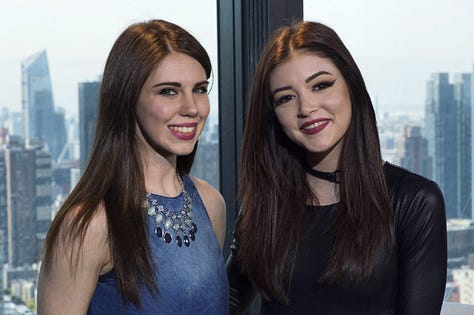
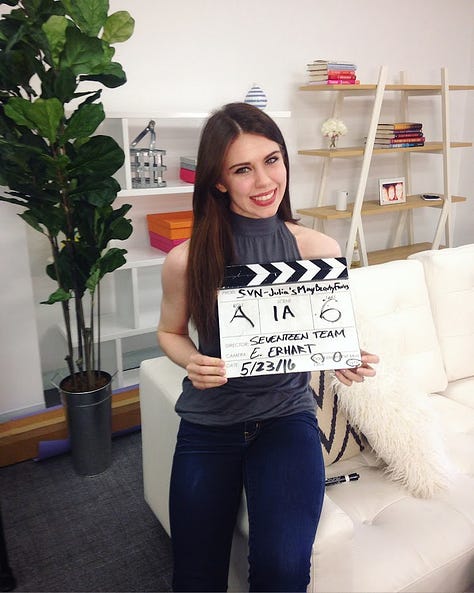
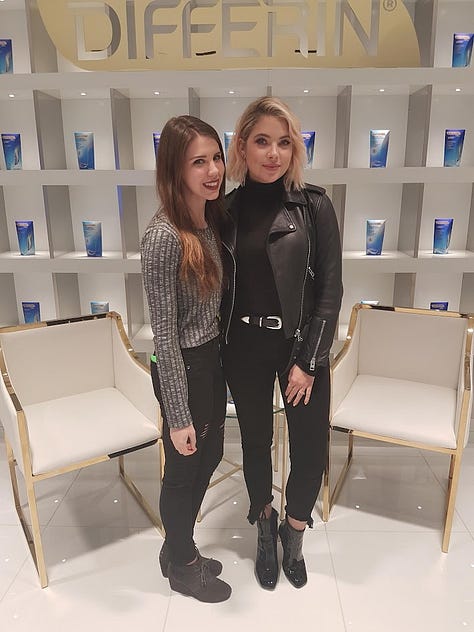
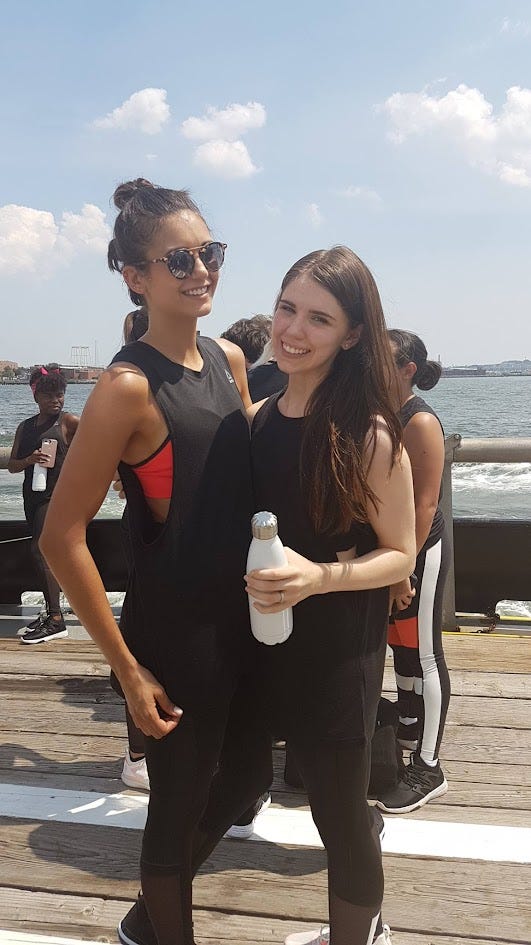
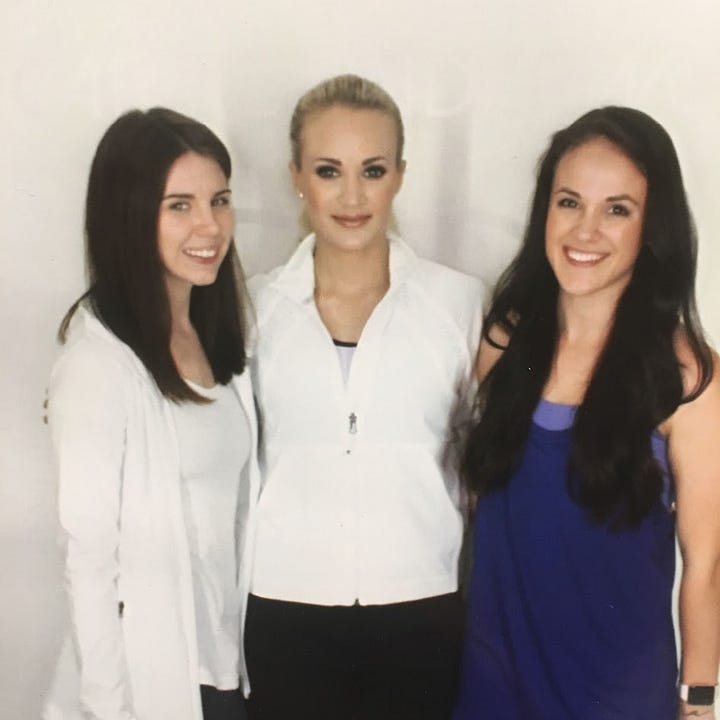
There were a few reasons I went freelance in 2019. First, I’d been laid off from my job at Elite Daily. The entire wellness vertical was laid off, and I had a choice to make: Apply for a new staff position or see if I could make it as a freelancer. I weighed my options, and the latter won.
Being a freelancer gave me flexibility. I could work from home and work as much or as little as I wanted. I planned to write whatever, for whomever. I would establish myself and secure relationships with editors so that, when Mark and I decided to expand our family, I could be a stay-at-home mom, work, and make a decent income. And, for a while, I was on that trajectory. I was a regular contributor to five websites. I had close relationships with all of my editors. I was making fantastic money. To date, my byline is across over 20 publications.
It never occurred to me that the industry could change as quickly and as drastically as it has. Layoffs were being announced by the day. Editors were leaving publications to get ahead of it all and pursue different career paths. Many joined the freelancer pool. Now, there’s no room to swim. We’re all standing, wading, waiting.
When new editors were onboarded to take the place of my contacts, those editors hired their friends to keep their circles strong and employed. I couldn’t blame them, and I didn’t; that’s how I’d gotten one of my most steady gigs, after all, and I would definitely help a friend in need if I were in a position to do so. The problem was: I became the crayon left out of the box, doomed to roll aimlessly on the floor until I’d inevitably hit a wall.
Safe to say, friends, I’ve finally hit that wall. I hit it hard, and the collision has broken me into wayward pieces. Fragments are missing. Even if you taped me back together, the parts wouldn’t fit perfectly anymore.
I am lucky to still have some work being assigned to me each month, and I have my own friends in editor positions to thank for this (you know who you are). I am a regular contributor for House Beautiful and occasionally pick up assignments for InStyle and INSIDER Reviews. However, rates have significantly dropped. What I bring home each month is a fraction of what it used to be (the surprise budget cuts are the most painful), and trying to pick up new gigs is near impossible.
Someone once wrote a post on LinkedIn that likened freelance journalists to hungry puppies jumping at every available bone. It was offensive, and many freelancers flocked to the comments to tell the author so. But if I’m being honest - and this post has been one giant brain dump of emotional transparency - there have been times when I did feel like a puppy. Only, I wasn’t jumping at bones. I’d come to terms with the fact that bones are so far out of reach now some time ago. No, I was nipping at coattails, whining, “feed me, feed me.” In recent weeks, however, I’ve stopped nipping, stopped whining, stopped begging.
Once upon a time, this is what my days looked like as a freelance journalist.
My therapist tells me I’m in a state of panic. I tell her I want to go home to a house that no longer exists. I don’t know where to go from here. My drawing board is blank, and it’s as terrifying as a blank page, the cursor blinking, waiting for you to write something, anything. But I’m coming up empty.
All this to say, I’m tired. I’m frustrated, and I know there are plenty of others - both in the editorial industry and other lines of work - that have felt or are feeling this way, too. Ironically, writing articles wasn’t my first career choice. I wanted to write books - but that’s an entirely different ballgame that I’m still training for. Regardless, writing articles helped me find my adult voice. Being good at the job gave me a sense of self-confidence that a younger me never could have dreamed I would develop someday. At the moment, however, my voice is hoarse. My ego is bruised.
There are days I feel as though I’m becoming obsolete in this workplace.
At home, however, it’s the polar opposite. I’m leaning into motherhood, wifedom, enjoying all the free time I have to spend giving my full attention to my daughter and taking care of this little family Mark and I have built together.
I wish I could say I have a game plan, but I’m still figuring out what this next phase of my career looks like. I’m working on my novel, and hoping that, one day, being a novelist will be enough. But I’m also upset and heartbroken when I think of the career I had, and the career I thought I’d have.
It’s not personal, though. It’s business.



❤️🙏 so well said Julia! I think anyone involved in the industry is feeling this way to some degree, though I'm sure disproportionately upon freelance journalists. I definitely feel the pressure of figuring out the game plan too! Sending big hugs & positive energy your way while you navigate this uncertainty xo
💗💗💗💗💗